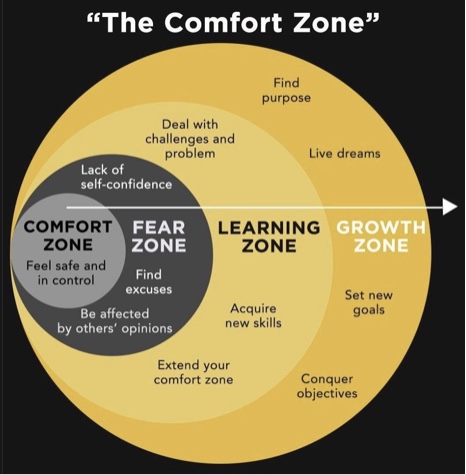The way I see it, there are two ways to successfully face your fears. You can gradually/incrementally introduce yourself to your fears (taking baby steps – learning more about it first, then being around it, then facing it in an unimportant situation, then facing it more regularly) OR you can dive right in and surround yourself with them. The best approach depends on how devastating the outcome could be and what your mindset is.
If there are irreversible repercussions to you failing, then you should take the gradual approach. Read about what you are going to face, talk with other people who have conquered that fear, listen to books/podcasts/YouTube videos, etc. Then just go and be around whatever you have to face. You don’t need to face it yet, but the nearer you are, the more acclimated you’ll get. Start by going once per week then increase the frequency. As you become more familiar with the event, your fear levels will likely go down.
If the stakes are low if you fail/mess up, it’s probably best to just jump right in and learn on the fly. Learning is often done best by experiencing. Then you can still read, listen, talk with others, and watch others to learn more, but now you’ll have a better understanding of what they’re going through (because you’ve already been through a similar situation). You will speed up your learning curve by doing. Just make sure you have a growth mindset going into the event. You may not be good at whatever it is you’re trying to accomplish/conquer yet, but with enough practice you can/will get better.

